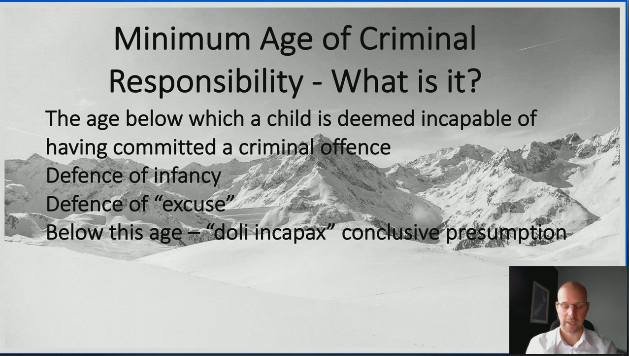
I'm going to join the session about codes of ethics in psychiatry. Three presentations by Paul Appelbaum, a "godsend" for psychiatry with an international perspective, Izaak Lim & @sidney_bloch #RANZCP2022
Follow @coopesdetat for tweets on 'psychosis and schizophrenia'
Follow @coopesdetat for tweets on 'psychosis and schizophrenia'

Prof Paul Appelbaum is, among other things, a Professor of Psychiatry @ColumbiaPsych, joining us live from New York- @appelbap #RANZCP2022
History of the World Psychiatric Association's involvement with history - @appelbap #RANZCP2022
wpanet.org
wpanet.org

A recent paper by Appelbaum et al. (2021), 'The WPA Code of Ethics for Psychiatry' - @appelbap #RANZCP2022
onlinelibrary.wiley.com/doi/10.1002/wp…
onlinelibrary.wiley.com/doi/10.1002/wp…
Declaration of Madrid consisted of a prologue, 7 standards & 16 guidelines concerning specific situations. Was not always clear what principles underlie the standards - @appelbap #RANZCP2022
wpanet.org/current-madrid…
wpanet.org/current-madrid…
Guidelines concerning specific situations "were in some ways, all over the map" - @appelbap #RANZCP2022
Pros of Declaration of Madrid = wide coverage of issue & relative stability over 20 years.
Cons of Declaration = the coverage was not systematic, important gaps, iterative revision process lead to duplication - @appelbap #RANZCP2022
Cons of Declaration = the coverage was not systematic, important gaps, iterative revision process lead to duplication - @appelbap #RANZCP2022
WPA committee took a more systematic approach in development a code of ethics than Declaration of Madrid - @appelbap #RANZCP2022
5 ethical principles are laid out in the Code to guide psychiatric profession:
1) Beneficence- "duty to act in ways to benefit patients," incl pursuing wellbeing of their patients, in light of best avail evidence & clinical experience... @appelbap #RANZCP2022
1) Beneficence- "duty to act in ways to benefit patients," incl pursuing wellbeing of their patients, in light of best avail evidence & clinical experience... @appelbap #RANZCP2022
1 cont) Beneficence sounds easy enough, but systemic, social, political factors impede this, Appelbaum says- @appelbap #RANZCP2022
2) Respect for patients for autonomy- "duty to act towards patients as fellow human beings", incl informed consent - @appelbap #RANZCP2022
3) Non-maleficence - "duty to avoid needless harm", eg. psychiatrists avoid use of diagnostic & therapeutic interventions prior to availability of appropriate evidence demonstrating favourable benefit/risk ratios for patients- @appelbap #RANZCP2022
4) Responsibility to improve standards of mental healthcare and psychiatric practice, by developing professional and personal knowledge - @appelbap #RANZCP2022
5) Serving society - "duty of advocacy" by, as example, utilising special skills to educate public about psychiatric disorders and dispel misconceptions & misinformation - @appelbap #RANZCP2022
Other sections in the code = ethics in psychiatric education, psychiatric research & public mental health. See the full code below- @appelbap #RANZCP2022
wpanet.org/_files/ugd/842…
wpanet.org/_files/ugd/842…
Advantages of principle-based approach = useful in teaching trainees & practitioners about ethics of psychiatry - @appelbap #RANZCP2022
Codes are not "set in stone" as evidence & ethics evolves. @WPA_Psychiatry views the Code as a living document that will reflect current knowledge - @appelbap #RANZCP2022 

Existing code does not address ethical issues facing psychiatric associations, such as institutional conflicts of interest - @appelbap #RANZCP2022
Q- does the WPA Code of ethics address issues surrounding pushing treatments without required evidence? A- @appelbap notes says this is becoming more complex than it was 20 years ago, research should not be disguised as treatment to evade research ethics committees #RANZCP2022
Prof of Psychiatry at University of Melbourne, Sidney Bloch is up next to discuss Codes of ethics for psychiatrists'' over the past 50 years, since 1973 - @sidney_bloch #RANZCP2022 

In a review of the 150 members of @WPA_Psychiatry, 15 has an explicit Code of ethics - @sidney_bloch #RANZCP2022
No mention of codes of ethics in 2/3 of members of the society, "which is either a dismal picture or it's not too bad, we're moving along" - @sidney_bloch #RANZCP2022
Typical characteristics of the Codes = in short, hybrid. Tend to be morally-based principles, e.g. trustworthiness, consent & also feature typical "code of rules", e.g. advertising, fee-setting - @sidney_bloch #RANZCP2022
Do psychiatric sub-specialties need their own codes? Only Codes of ethics exist for 2 sub-specialties - adolescent/children & forensic psychiatry - @sidney_bloch #RANZCP2022
Izaac Lim is now going to discuss @RANZCP Code of Ethics, published 30 years ago. #RANZCP2022
ranzcp.org/files/about_us…
ranzcp.org/files/about_us…
@RANZCP foundation Code of ethics had 9 Principles - two have been added in the past 30 years - Lim #RANZCP2022
7 major themes of change have emerged over time incl: respect to patient exploitation, recognition of family & carers, the special place of Indigenous Peoples, confidentiality...- Lim #RANZCP2022
...engaging patients in decision-making, multidisciplinary collaboration & the wellbeing of psychiatrists - Lim #RANZCP2022
New publication by Lim et al. about the Code below, in which they state in conclusion, "the Code has proved to be a dynamic instrument in keeping abreast of changes in psychiatry and society". #RANZCP2022
pubmed.ncbi.nlm.nih.gov/35077253/
pubmed.ncbi.nlm.nih.gov/35077253/
As the Code evolves, it gives the College and psychiatric community to become involved in decisions and conversations about ethics in psychiatry practice - Lim #RANZCP2022
• • •
Missing some Tweet in this thread? You can try to
force a refresh








